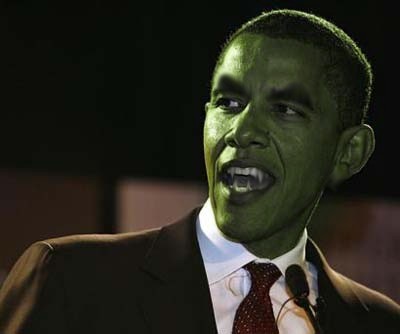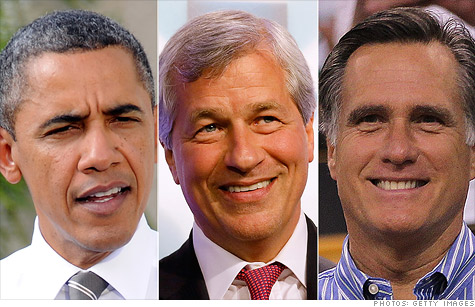Pakistani Prime Minister Yusuf Raza Gilani meets with U.S. special envoy Richard Holbrooke in 2010. (Reuters)
Richard Holbrooke, the late diplomat, would never have let relations between the United States and Pakistan decline to this level, his widow, Kati Marton, said on Friday. "The day after [Osama] bin Laden was killed, Richard would have been on a plane to Pakistan, and he would not have come home until the relationship was mended," Marton, an author and journalist, told me for an article in National Journal. "We never went for a walk in Central Park without calls coming in from Pakistan."
"He knew not only the ISI [Pakistani intelligence] folks, but the generals and all the politicians and dissidents. He crawled into tents in refugee camps," Marton said. "He wouldn't have allowed [this] to happen."
Marton was referring to the freeze in U.S.-Pakistan relations that began after the Obama administration's raid on bin Laden's compound in Abbottabad a year ago -- tensions that may now pose the single biggest obstacle to ending America's longest war. Nominally a U.S. ally, Pakistan has stepped up its support of violent extremists intent on attacking U.S. and NATO soldiers in Afghanistan and undermining stability there. But according to critics in the United States, Europe, and Pakistan, the issue is still being largely shunted aside by Washington out of fear, inertia, and a lack of a strategic vision on the part of the U.S. and NATO.
"It is a failure of diplomacy of the highest order, where we have had the lives of our people at stake," Zalmay Khalilzad, the former U.S. ambassador to Afghanistan and the United Nations, told NJ for the cover story in this week's issue, "Paralyzed by Pakistan." In order to keep the Pakistanis even marginally cooperative, Khalilzad said, "I think frankly we have been too cautious and willing to pay too high a price."
Before he was forced out of office last year, Pakistan's ambassador to the U.S., Husain Haqqani--who worked closely with Holbrooke--urged U.S. officials to adopt a "holistic" approach to the region that would help wean Pakistan from its military support of Islamists. It never happened. And today, rather than coming up with a new overarching strategic policy for Pakistan and the region that is commensurate with the deep commitments that President Obama and NATO have now made, Washington and other capitals continue to watch, helplessly, as a middle-sized developing country defies a superpower and the NATO alliance with virtual impunity.
"The Americans are completely paralyzed by this situation," said one European diplomat, speaking on condition of anonymity. A senior NATO official also laid the problem on the Americans. "It's quite difficult at times to find a single U.S. policy on Pakistan, much less coordination with others."
White House officials, responding to Marton’s comments, said Friday that the U.S.-Pakistan relationship is mainly poor because of “a series of events that were impossible to foresee but had nothing to do with our policy,” as one senior administration official put it. The incidents began with the diplomatic furor over a CIA contractor who killed two Pakistanis in early 2011 and culminated in the accidental NATO strikes that accidentally killed 24 Pakistani troops last November. That had nothing to do with “poor diplomacy,” the official said.
The administration's paralysis has been evident in an intense, months- long debate over whether to issue an apology to Pakistan over the errant NATO strikes that killed at least 24 Pakistani soldiers last fall, even though several months have passed since the completion of an official Pentagon investigation that partially blamed mistakes made by U.S. forces for the incident, U.S. officials said. The State Department resurrected the idea earlier this year after repudiating the U.S. ambassador to Pakistan, Cameron Munter, early on when he pressed for an immediate apology following the incident last November. But Obama, facing charges of appeasement from Mitt Romney, has hesitated.
Marton said that by the end of the summer of 2010, Holbrooke, before he died suddenly that December at the age of 69, had begun to grow confident that he could deliver a strategic vision for the region that would address the fundamental issues in the U.S.-Pakistan relationship. "I think it was in August, when I caught him with a faraway look, the kind he had when he was working on something in his head. I said, 'Richard what are you thinking about?' He said, 'I think I've got it. I think I can see how all the pieces can fit together.' It looked like he was working a Rubik's cube in his head.... The thing that keeps me awake some nights is that I'm not at all sure he had that conversation with the president."
It's not clear that would have made a difference, however. Widely acclaimed as one of America's most masterful diplomats, having orchestrated the 1995 Dayton peace accord, Holbrooke was intensely frustrated by White House interference, according to observers inside and outside the administration. After being named Obama's special representative for Afghanistan and Pakistan in 2009, Holbrooke was said to have been curtailed by then-National Security Adviser James Jones and a coterie of close aides around Obama. This was especially true when Holbrooke sought to tackle the larger regional issues, in particular the tense relationship between India and Pakistan, which the Pakistani military and ISI use to justify their support of Islamist radicals. The White House denied his request to make India and specifically Kashmir part of his portfolio, although that disputed province, situated between Pakistan and India, has given birth to numerous Pakistan-supported jihadist groups. Nor did Holbrooke get support from the White House when he sought to confront Afghan President Hamid Karzai over corruption, critics say.
After Holbrooke died suddenly, he was replaced by career diplomat Marc Grossman, who is widely considered ineffective and has only provoked back-biting from the State Department's South and Central Asian bureau, where the assistant secretary, Robert Blake, has been largely cut out. "It's all Holbrooke's broken china," says one official. The two leading figures in U.S. policy in the region, Ryan Crocker, the ambassador to Afghanistan, and Gen. John Allen, are already making plans to leave (in Crocker's case, back to retirement, while Allen is expected to be named NATO commander in Europe). Ambassador Munter, described as increasingly agitated over the failure of U.S. policy, has been reassigned.
While Secretary of State Hillary Rodham Clinton is sometimes praised for her approach to the region, having recently proposed a "New Silk Road" to induce Pakistan and other countries to work with Afghanistan, she too is seen as someone who has been largely cut out of policymaking by the White House.
In the meantime, U.S. officials have begun to bluntly acknowledge, as never before, that Pakistan's senior military and intelligence apparatus are supporting and funding the same jihadists who are killing U.S. and NATO soldiers--not just Americans, but also British, French, Italians, and Canadians--and endangering the United States' 10-year, vastly expensive response to 9/11, placing the outcome of America's longest war in danger. Even the U.S. Embassy in Kabul -"which is American soil," U.S. ambassador to Afghanistan Ryan Crocker angrily noted in an interview -- was twice attacked by "Pakistan-based insurgents."
Last September, outgoing Joint Chiefs Chairman Mike Mullen called the terrorist Haqqani network in Pakistan's tribal regions, the suspected culprit behind the Kabul embassy attack, a "veritable arm" of Pakistan's ISI or intelligence service. Mullen, now retired, is said to be working on a book that will defend Holbrooke's diplomatic efforts and criticize the Obama administration.
In recent days, Pakistan's decision to imprison a doctor who helped the United States confirm bin Laden's whereabouts has only highlighted the diplomatic issue.
U.S. and NATO officials remain hesitant about offending Islamabad because of a bedrock fear that, if Pakistan becomes destabilized, its nuclear arsenal could fall into the wrong hands. That caution ruled at the recent NATO summit in Chicago, where all the talk was simply about getting the Pakistanis to permit NATO the use of its overland routes in order to expedite the pullout.
Despite the rampant anti-Americanism in Pakistan, Khalilzad and other critics suggest that one alternative is to issue a "demarche" of the kind the Pakistanis have not been given since right after 9/11, when then-President Pervez Musharraf was delivered a stark choice: Support the war against the Taliban totally, or you're through. Now Pakistan should be confronted with a clear and harsh update of that choice: confront the international community and be turned into a sanctioned pariah, like Iran, in which case the country will lose ground economically and militarily to its arch-rival India. Or, embrace fully anti-Taliban measures and be rewarded with more economic assistance, such as Clinton's New Silk Road, which seeks to turn the region into a commercial hub once again.
"We have to be willing to escalate the pressure, which in my view has to include Pakistan's very difficult economic circumstances," says Khalilzad. "Today I think the Pakistanis can cover only about 10 weeks of imports. We also need to move diplomatically by engaging some key countries they rely on, like China and Saudi Arabia."
Until he died, Marton says, Holbrooke was trying to get the administration to see the larger picture. "He was pushing reconciliation with the Taliban when no one wanted to hear about it," she said. "He knew that ultimately they would have to come to him to negotiate." But now negotiations are going nowhere.










